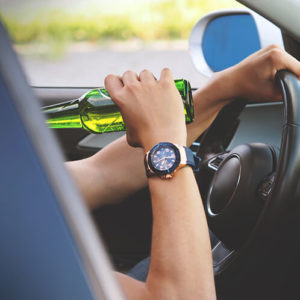Probationary Driving License
 When a driving license is obtained for the first time, it is initially a probationary driving license. Novice drivers, whether they are 17 or 67 years old, are expected to commit fewer traffic offenses during this period than experienced drivers. The probationary driving license is a regular driving authorization, but misconduct, such as committing a traffic violation within the first two years, can have consequences. Forgetting a parking ticket or exceeding the speed limit slightly and getting caught by a speed camera will not result in serious consequences. However, it is a different story for serious violations. In such cases, there may be an extension of the probationary period, mandatory additional training, or even the revocation of the driving license.
When a driving license is obtained for the first time, it is initially a probationary driving license. Novice drivers, whether they are 17 or 67 years old, are expected to commit fewer traffic offenses during this period than experienced drivers. The probationary driving license is a regular driving authorization, but misconduct, such as committing a traffic violation within the first two years, can have consequences. Forgetting a parking ticket or exceeding the speed limit slightly and getting caught by a speed camera will not result in serious consequences. However, it is a different story for serious violations. In such cases, there may be an extension of the probationary period, mandatory additional training, or even the revocation of the driving license.
So, novice drivers are put to the test initially and must demonstrate, despite passing the driving test, that they have understood all the rules and can adhere to them in their daily routines. This is because misconduct on the road can not only result in hefty fines but also endanger one’s own life and the lives of other road users.
Therefore, on this page, we aim to answer the questions that novice drivers often have. What offenses are particularly penalized during the probationary period? When can the probationary period be extended? What is a remedial driving course? Is participation in traffic psychology counseling mandatory?
What is the Probationary Period?
 The regulation regarding the “Probationary Driving License” can be found in § 2a of the Road Traffic Act (StVG). In the first paragraph, the duration of the probationary period is defined as follows: “Upon first obtaining a driving license, it is issued on probation; the probationary period lasts for two years from the date of issuance.” This means that the probationary period begins when the driving license is handed over. This also applies to novice drivers who obtain their driving license at the age of 17. However, they do not receive a regular driving license but instead receive a limited test certificate that is valid only in Germany.
The regulation regarding the “Probationary Driving License” can be found in § 2a of the Road Traffic Act (StVG). In the first paragraph, the duration of the probationary period is defined as follows: “Upon first obtaining a driving license, it is issued on probation; the probationary period lasts for two years from the date of issuance.” This means that the probationary period begins when the driving license is handed over. This also applies to novice drivers who obtain their driving license at the age of 17. However, they do not receive a regular driving license but instead receive a limited test certificate that is valid only in Germany.
The probationary period has been in existence since 1986. It was introduced because it was observed that novice drivers, due to their lack of experience, were statistically involved in traffic accidents very frequently. Since novice drivers are under special observation for at least two years, any misconduct on the road is also evaluated more strictly for them. Novice drivers who commit a traffic violation or a traffic offense are not only subject to penalties such as fines and points as specified in the fine schedule. Additionally, there may be what are called probationary measures. For novice drivers, the evaluation of traffic offenses is divided into two categories.
Traffic Violations During the Probationary Period: A Offenses and B Offenses
If you are in the probationary period, you should be aware that traffic violations can have significant consequences. Of course, not every type of offense falls into this category. Unlike experienced drivers who are no longer in their probationary period, potential violations by novice drivers are categorized as A offenses and B offenses.
A Offenses
A offenses are considered serious violations. Here are some examples:
- Exceeding the speed limit by 16 km/h or more in poor weather conditions or by 21 km/h or more in good weather conditions
- Failure to keep right
- Disregarding right-of-way rules
- Following too closely
- Overtaking on the right outside built-up areas
What are the consequences of an A offense for novice drivers?
An A offense has several consequences for inexperienced drivers:
- Penalties as specified in the fine schedule
- Extension of the probationary period
- Completion of a remedial driving course
Firstly, the probationary period is extended by an additional two years. In addition, the novice driver must complete a remedial driving course. The remedial driving course is a form of additional training conducted at specific driving schools. It consists of a total of four theory sessions, each lasting 135 minutes, and a 30-minute observation drive. Such a seminar can cost up to 400 euros, and these costs must be fully borne by the individuals involved. Upon successful completion of the remedial driving course, proof must be submitted to the driver’s licensing authority.
If you find yourself in a situation where you need to complete a remedial driving course, it’s important to ensure that it is completed within a certain timeframe. Failure to meet the deadline or failing the remedial driving course will result in the revocation of the driving license.
What happens in the case of a repeated A offense?
If there is a second A offense within the already extended probationary period, the individual will receive a written warning from the authorities and will be recommended to participate in voluntary traffic psychology counseling.
A third A offense within the probationary period has long-term consequences for the novice driver. The third offense leads to the loss of the driving license and a suspension of six months or longer. This means that no new driving license will be issued during this period. An application for the reissuance of the driving license can be made three months before the end of this suspension period. However, this does not mean that the repeat offender will simply get their license back. For example, it may be necessary to undergo a new practical driving test.
Criminal Offenses During the Probationary Period
Not only the traffic offenses listed above but also criminal offenses committed in traffic are considered A offenses and have corresponding consequences. The Road Traffic Licensing Regulations (FeV) cite the following criminal offenses under the Criminal Code:
- Leaving the scene of an accident (§ 142)
- Negligent homicide (§ 222)
- Negligent bodily harm (§ 229)
- Coercion (§ 240)
- Dangerous interference with traffic (§ 315b)
- Endangering road traffic (§ 315c)
- Illegal car races (§ 315d)
- Driving under the influence of alcohol or drugs (§ 316)
- Intoxication (§ 323a)
- Failure to provide assistance (§ 323c)
B Offenses and Consequences for Novice Drivers
A B offense, unlike an A offense, is a less serious offense. The following traffic offenses are categorized as B offenses:
- Improperly secured cargo
- Expired main vehicle inspection (HU)
- Worn-out tires
- Parking on a highway
- Transporting children without child seats or disregarding seatbelt requirements for children
Just like with A offenses, the fines specified in the fine schedule must also be considered in the case of B offenses. For example, a fine may be imposed. However, unlike A offenses, a single B offense does not have any immediate consequences regarding the probationary period.
What happens in the case of a repeated B offense?
It’s a different story if the novice driver commits a B offense for the second time. Two B offenses are treated the same way as an A offense. This means that with two B offenses, just like with a single A offense, the probationary period is extended to a total of four years, and the individual is required to complete a remedial driving course. If a third B offense occurs, the authorities will once again issue a written warning and recommend traffic psychology counseling. The same applies in the case of a fourth B offense. It’s only when there are a total of six B offenses that the driving license is revoked. Six B offenses are treated the same as three A offenses. Therefore, a suspension occurs, and a new driving license can only be applied for after the suspension period has passed.
Alcohol Offenses During the Probationary Period

In addition to the distinction between A and B offenses, novice drivers are also subject to stricter rules than experienced drivers, especially when it comes to the blood alcohol concentration (BAC) limit. For novice drivers in Germany, the BAC limit is set at 0.0 per mille. This limit applies not only to novice drivers but also to all drivers under the age of 21. The legal basis for the alcohol prohibition is § 24c of the Road Traffic Act (StVG). The penalties for an alcohol-related offense can be quite severe, especially for young drivers.
If the 0.0 per mille limit is not adhered to, the individual will be fined 250 euros and receive one penalty point in the Flensburg traffic violation registry. However, the penalty can be even higher, depending on the BAC level and the driver’s prior history of violations:
- For a BAC level of 0.5 to 1.09 per mille, the penalties include 2 penalty points, a fine of 500 euros, and a one-month driving ban for the novice driver.
- If there is a previous entry for an alcohol-related offense, the fine is doubled to 1000 euros. Additionally, 2 penalty points and a 3-month driving ban are imposed.
- If there were already two previous violations, the fine is increased to 1500 euros.
- Anyone with a BAC of 1.1 per mille or higher is considered unfit to drive. This is classified as a criminal offense and is punished with 3 penalty points in the Flensburg registry, a prison sentence or a fine, and a driving ban.
Novice drivers should also be aware that the 0.0 per mille limit applies to cycling as well.
If a novice driver commits a drug or alcohol-related offense during the probationary period, they are required to complete a specific remedial driving course. This must be done within a certain timeframe. Failure to do so will result in the revocation of the driver’s license.
Consequences of Traffic Violations During the Probationary Period
| Violation | Consequences |
|---|---|
| Single type A violation | Extension of the probationary period by 2 years, obligatory remedial driving course |
| Single Type A violation in the extended probationary period | Formal warning,
recommendation to participate in traffic psychology counseling. |
| Repeat type A violation in the extended probationary period | Revocation of the driving license |
| DUI within the probationary period | Treated as a type A offense, dedicated & mandatory catch-up seminar for young DUI offenders |
| Violation | Consequences |
|---|---|
| Single type B violation | No extension, no seminar |
| Two type B violations | Extension of the probationary period by 2 years, obligatory remedial driving course |
| Single type B violation followed by single type A violation | Extension of the probationary period by 2 years, obligatory remedial driving course |
| Two type B violations in the extended probationary period | Formal warning, recommendation to participate in traffic psychology counseling. |
| Two more type B violations in the extended probationary period | Revocation of the driving license |
The Remedial Driving Course During the Probationary Period – Key Information
A remedial driving course is only applicable to novice drivers. It is required when a novice driver commits an A offense or two B offenses. For experienced drivers outside of their probationary period, there is a different event called a “Driver Fitness Seminar” based on the point system. These are separate programs.
The purpose and procedure of the remedial driving course are defined in § 35 Paragraph 2 of the Road Traffic Licensing Regulations (FeV).
Procedure and Scope of the Remedial Driving Course

The seminar is conducted in a group, consisting of a minimum of six and a maximum of twelve participants. It consists of four sessions, each lasting 135 minutes. The seminar takes place within a period of two to four weeks. As part of the remedial training, a driving test is conducted to observe the participants’ driving behavior. In addition, group discussions are held, traffic situations are analyzed, and information is provided. The goal is to change attitudes towards behavior on the road, promote awareness of risks, and improve hazard perception.
The seminar must be completed in its entirety within a period of two months. Failure to do so can result in the revocation of the driving license. Therefore, there is no way to avoid the remedial driving course.
Special Forms of the Remedial Driving Course
In the case of drug or alcohol-related offenses, novice drivers are required to attend a special remedial driving course. For example, if someone violates the 0.0 per mille limit, they must complete such remedial training. Unlike the regular remedial driving course, this one is tailored to the specific offense committed. Course participants, for instance, receive information about the effects of alcohol and other substances. Furthermore, they are expected to develop new behaviors during the course to prevent such misconduct in the future. The exact regulations for the special remedial courses are outlined in § 36 of the Road Traffic Licensing Regulations.
Unlike the regular remedial driving course, the special one is not conducted at a driving school. Instead, it is carried out by a traffic psychologist who must meet certain qualifications. The scope of the course is also different. There are four sessions held over a period of two to four weeks, each lasting 180 minutes. Participants are required to complete tasks between the individual sessions. Just like with the regular remedial driving course, individual sessions may be possible under certain circumstances. Additionally, the costs may be higher than those of a regular remedial driving course.
Traffic Psychology Counseling During the Probationary Period
As described above, a repeated A offense during the extended probationary period results in a written warning from the authorities. In addition, the individual is advised to seek traffic psychology counseling. However, participation in traffic psychology counseling is voluntary and not mandatory.
Procedure and Scope of Counseling
Traffic psychology counseling is intended to help the novice driver reflect on their behavior and acknowledge their mistakes. In a conversation with a psychologist, they will work on how to address deficiencies in their attitude towards road traffic. The procedure for counseling is outlined in § 38 of the Road Traffic Licensing Regulations (FeV). It also states that counseling can be supplemented by a driving test if “the counselor deems it necessary.” Upon completion, the individual receives a certificate of participation to be submitted to the driver’s licensing authority. However, the results of the counseling are only communicated to the individual and not to the authorities. This means that there is no “pass” or “fail.”
The scope of counseling can be divided into three to four individual sessions, but the total duration should not exceed four hours. The time between the first and the last session must be at least two weeks and no more than four weeks.
Additionally, it’s important to adhere to a deadline. Counseling is available for a period of two months.
What Documents Are Required, and What Is the Cost of Traffic Psychology Counseling?
Before the counseling session, the individual must submit an identity card, their extract from the Flensburg Driver Fitness Register, and proof of payment for the counseling. To obtain the extract, an “Application for Information from the Driver Fitness Register” must be submitted to the Federal Motor Transport Authority.
The costs for the counseling sessions are not uniform and must be covered by the participant. However, the cost is roughly around 300 euros. Unlike the Medical-Psychological Assessment (MPU), no report is generated. The individual only receives a confirmation of participation.
